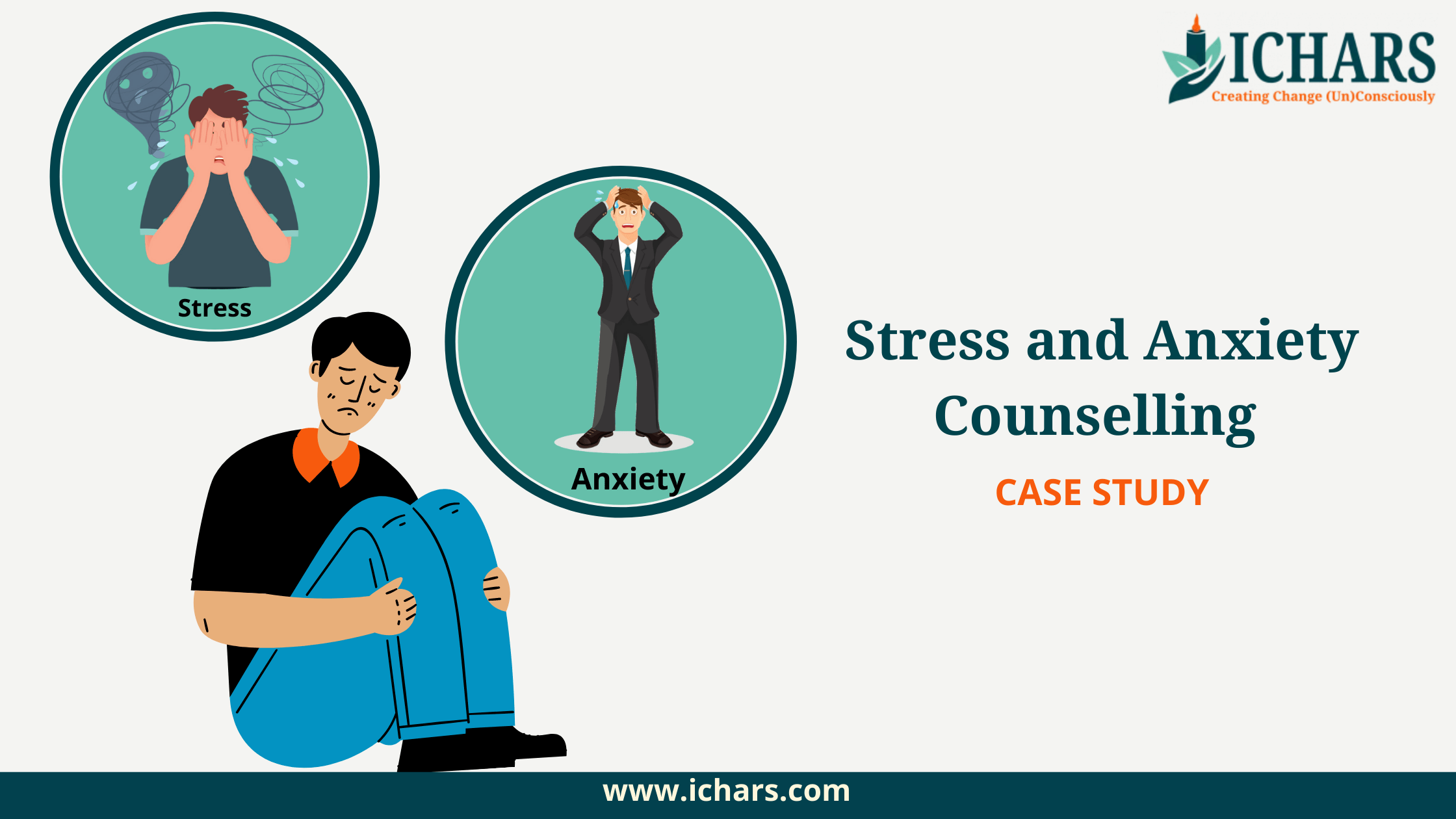Take the first step toward healing with therapy for anxiety solutions
Exploring Different Techniques in Therapy for Stress And Anxiety Disorder for Lasting Change
When dealing with stress and anxiety disorders, it's vital to explore a range of counseling techniques. Each approach supplies one-of-a-kind understandings and tools to help you manage your symptoms effectively. You might find that combining strategies can generate the very best results. Comprehending the subtleties of these strategies is key to cultivating enduring adjustment. Suppose the best combination could launch a new level of emotional wellness for you?
Understanding Anxiousness Problems: A Brief Review
Anxiousness conditions, which affect countless people worldwide, can substantially affect life. You might experience overwhelming sensations of anxiety or fret that seem irrepressible. These sensations can cause physical signs like an auto racing heart, sweating, or even dizziness. Usual sorts of anxiety problems include generalised anxiety problem, panic condition, and social stress and anxiety condition. Each has special indications, but they all share a tendency to interrupt your routine and relationships.Understanding the origin triggers of your anxiousness is important. It could originate from genes, brain chemistry, or life experiences. Acknowledging your triggers can assist you manage your actions better. It is necessary to keep in mind that you're not the only one in this battle. Several people encounter comparable obstacles, and looking for help is a strong step toward sensation much better. By finding out about anxiousness conditions, you're currently on the path to understanding and managing your condition a lot more properly.
Cognitive-Behavioral Therapy: Testing Adverse Thought Patterns
In Cognitive-Behavioral Therapy, you'll start by recognizing the unfavorable thought activates that add to your anxiety. You'll work on changing them with more positive options when you acknowledge these thoughts. With each other, you'll develop effective coping techniques to assist manage your stress and anxiety in daily circumstances.
Determining Unfavorable Idea Triggers

Acknowledging the certain triggers behind your unfavorable thoughts can be essential in managing anxiousness when you experience moments of distress. Beginning by taking note of situations that prompt feelings of worry or worry. Is it a jampacked area, an upcoming due date, or a conversation with certain people? Write down these circumstances in a journal. This will aid you determine patterns in your thinking. Notice physical feelings that accompany your unfavorable ideas, like an auto racing heart or tightness in your breast. By identifying these triggers, you obtain understanding into what's fueling your anxiety. Understanding these links is the very first step in testing those ideas and inevitably reclaiming control over your psychological feedbacks.
Changing Ideas With Positives
Challenging negative idea patterns is a necessary action in transforming your way of thinking and decreasing anxiousness. You may usually find yourself caught in cycles of self-doubt or devastating reasoning. Instead of allowing these ideas dictate your feelings, technique changing them with positive affirmations or realistic options. As an example, when you think, "I can not handle this," shift it to, "I can take care of challenges one action at once." This straightforward modification can greatly impact your mood. Frequently determining and responding to these adverse ideas aids develop a much healthier interior dialogue. Remember, it takes time and initiative, however continually exercising this strategy can lead to long lasting adjustment, encouraging you to deal with stress and anxiety with restored self-confidence and durability.
Structure Coping Techniques Together
Changing unfavorable thoughts is only the beginning of taking care of stress and anxiety efficiently. To create long-term modification, you need to build coping approaches that encourage you. Cognitive-Behavioral Treatment (CBT) helps you recognize and test those purposeless thought patterns. Together, you and your therapist can discover exactly how these thoughts influence your feelings and behaviors.Start by developing sensible methods, like journaling or mindfulness workouts, that allow you to challenge anxiety head-on. When you face your anxieties gradually, you'll learn to react differently.

Mindfulness and Acceptance-Based Approaches: Growing Present-Moment Understanding
As you navigate the intricacies of stress and anxiety, including mindfulness and acceptance-based techniques can considerably improve your ability to grow present-moment recognition. By concentrating on the here and now, you'll locate that you can observe your ideas and feelings without judgment (Counseling services for anxiety). This method aids you acknowledge your stress and anxiety without really feeling overwhelmed by it.Engaging in mindfulness exercises, such as deep breathing, body scans, or assisted reflections, allows you to ground yourself in your existing experience. Acceptance-based techniques motivate you to welcome your feelings instead of battle against them. They lose their power over you.Incorporating these methods into your everyday regimen can transform just how you respond to anxiety when you accept your feelings. You'll establish resilience and learn to navigate difficult circumstances with better ease. Inevitably, cultivating present-moment understanding lays the foundation for lasting change, equipping you to lead a more fulfilling life
Exposure Treatment: Challenging Fears Progressively
Direct exposure therapy assists you face your anxieties in a gradual method, making it less overwhelming. You'll discover methods to face anxiety-provoking circumstances step by action, while likewise building coping methods to handle your reactions. This method empowers you to take control and reduce anxiousness with time.
Steady Direct Exposure Methods

When encountering stress and anxiety, gradually facing your worries can be an effective method to regain control. This method, called gradual direct exposure, involves gradually exposing on your own to the scenarios or objects that cause your anxiety. Begin with much less challenging circumstances and progressively work your means as much as even more challenging ones. If you're terrified of public speaking, you may start by talking in front of a mirror, then progress to sharing thoughts with a close friend, and eventually attend to a tiny team. Each action aids desensitize you to the worry, developing your self-confidence over time. Remember, it's important to speed yourself and commemorate tiny triumphes as you relocate with this process, strengthening your capacity to take care of anxiousness successfully.
Building Coping Approaches
Structure effective coping strategies is necessary for managing anxiousness, specifically as you confront your concerns gradually - Counseling services for anxiety. One effective method is exposure therapy, where you begin by facing your concerns in a controlled manner. Start with less frightening scenarios and gradually function your method approximately even more difficult situations. This progressive exposure aids desensitize you to anxiety triggers, making them much less overwhelming.Incorporate leisure strategies, such as deep breathing or mindfulness, to calm your mind throughout exposure. Track your development, celebrating small success along the method to increase your confidence. Remember, it's alright to take your time; the goal isn't perfection but constant renovation. By developing these techniques, you'll empower on your own to browse anxiety and embrace life extra fully
Psychodynamic Therapy: Revealing Origin of Anxiousness
Psychodynamic treatment discovers the unconscious mind, revealing the source of your anxiety. By examining your thoughts, sensations, and past experiences, this strategy assists you uncover underlying disputes and unsettled concerns that may contribute to your present anxiety. You'll work with a specialist to check out childhood experiences, partnerships, and emotional patterns that form your feedbacks today.As you acquire understanding into these much deeper layers of your psyche, you'll begin to acknowledge just how past occasions influence your existing actions. This understanding can result in catharsis, enabling you to process emotions you may have suppressed.Through the therapeutic partnership, you can also recognize defense reaction that may have created in time, supplying a clearer path to change. Ultimately, psychodynamic therapy outfits you with the tools to address your anxiousness at its core, promoting long lasting makeover in your psychological health.
Alternative and integrative Methods: Combining Methods for Greater Efficacy
Incorporating various therapeutic methods can boost your trip towards handling anxiousness better. By integrating aspects from cognitive-behavioral treatment, mindfulness techniques, and all natural techniques, you can develop a customized technique that resolves your special demands. For circumstances, you could utilize cognitive-behavioral strategies to challenge negative thought patterns while incorporating mindfulness exercises to ground yourself in today moment.Additionally, checking out all natural techniques such as yoga or meditation can advertise leisure and reduce anxiety symptoms. This blend permits you to develop better self-awareness and resilience.Experimenting with these diverse approaches can help you discover what resonates most with you. Keep in mind, it has to do with discovering a synergy that works, instead than adhering to a solitary method. This integrative method not just offers prompt relief but also fosters long-term skills for handling stress and anxiety, empowering you to redeem control over your life.
The Duty of Assistance Systems: Structure Durability Through Connection
While it here may appear that handling anxiety is a solitary journey, having a solid assistance system can play a vital role in your strength. Bordering yourself with compassionate good friends, household, or support teams develops a risk-free space where you can openly share your sensations and experiences. When you connect with others, you remind on your own that you're not alone in this struggle.These partnerships use encouragement and can give sensible coping techniques that have actually functioned for others. It's likewise a possibility to obtain viewpoint; buddies can assist you see situations in different ways, minimizing sensations of isolation.Moreover, psychological support cultivates a sense of belonging, which can significantly ease anxiety signs. By leaning on your support system, you can develop resilience and tackle difficulties more properly. Remember, connecting for assistance suggests strength, and it can make all the distinction in your trip towards handling anxiousness.
Frequently Asked Concerns
What Are the Typical Symptoms of Anxiety Disorders?
You could experience uneasyness, tiredness, trouble concentrating, irritability, muscle stress, and rest disturbances. Physical signs and symptoms can include fast heartbeat, sweating, and shivering. Acknowledging these signs early can aid you seek appropriate support and treatment.
How Much Time Does Therapy Normally Last for Stress And Anxiety Problems?
Therapy for stress and anxiety problems typically lasts anywhere from a couple of weeks to numerous months. It really depends on your specific needs, progress, and the strategies your specialist utilizes to assist you manage your stress and anxiety efficiently.
Can Medication Be Made Use Of Together With Therapy for Stress and anxiety?
Yes, medication can certainly be used along with treatment for stress and anxiety. Combining both strategies typically improves therapy performance, aiding you handle signs and symptoms while discovering underlying problems through counseling (Counseling services for anxiety). Always consult your doctor for tailored recommendations
Are There Self-Help Approaches for Handling Anxiety?
Yes, there are a number of self-help strategies for taking care of stress and anxiety. You can exercise mindfulness, take part in normal exercise, maintain a well balanced diet, develop a routine, and make use of deep breathing techniques to help in reducing anxiousness symptoms successfully.
How Do I Know if I Required Specialist Assistance for Anxiousness?
